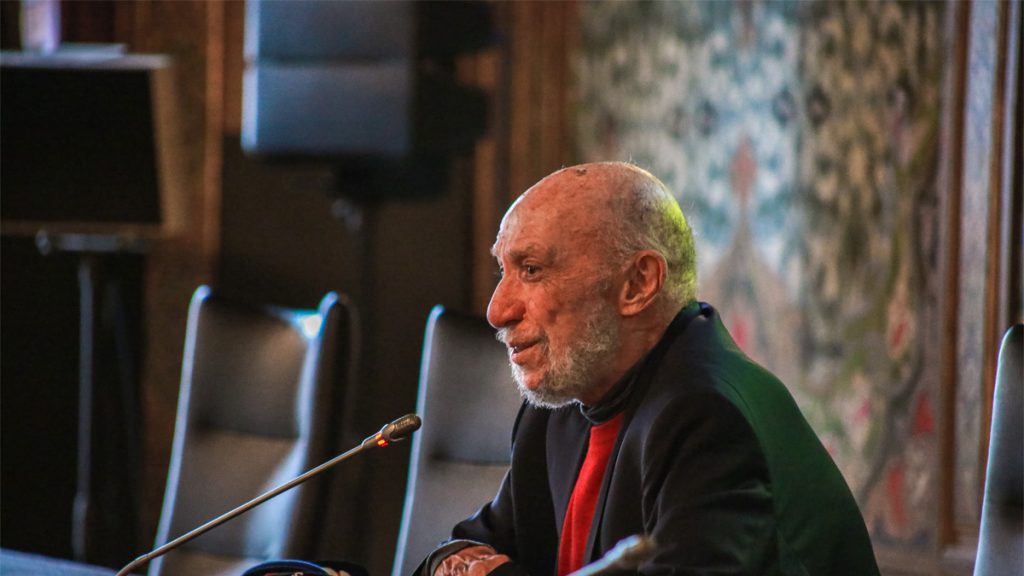The Gaza Tribunal, an independent civil society initiative established as a “people’s tribunal,” will hold its first public assembly in Sarajevo from May 26-29, 2025, at the International University of Sarajevo. This landmark event represents a crucial step in the Tribunal’s mission to document alleged war crimes, address accountability gaps in the international justice system, and advocate for justice for Palestinians.
A Global Civil Society Response
The Gaza Tribunal was formally launched in London in November 2024 by a coalition of academics, intellectuals, human rights advocates, and representatives from civil society organizations in response to what they describe as “the total failure of the organised international community to implement international law” in Gaza.
Led by Richard Falk, a distinguished international law expert and former UN special rapporteur on the occupied Palestinian territories, the Tribunal positions itself as an effort to “close the enforcement gap by exerting civil society pressure on governments to act.” It “derives its authority from people and their sense of justice rather than relying solely on governments and their institutions.”
The Sarajevo Assembly: A Milestone Event
The Sarajevo event marks a significant progression from the Tribunal’s previous preparatory meetings and strategic sessions held in London (February 2025), Istanbul (February 2025), and Alicante (May 2025). These earlier gatherings focused on procedural matters and strategic coordination to prepare for this public assembly.
The Sarajevo session will bring together the Tribunal’s Steering Committee, specialized Chambers, Advisory Policy Council, and expert witnesses for four days of public proceedings. During this time, participants will review investigative reports, hear testimonies from witnesses and experts, and discuss a Draft Declaration—a comprehensive document intended to serve as a reference for accountability and prevention of similar situations globally.
The Jury of Conscience, formed of approximately ten high-profile figures from diverse disciplines, will evaluate the evidence presented by witnesses, experts, and Chamber reports, and issue a moral judgment.
Four-Day Program Schedule
Day 1 (Monday, May 26) – International Law Chamber
• Expert panels on “Nakba and Colonial Genocide,” “Patterns of Genocide,” and “Specific Acts”
• Witness testimonies from Gaza field researchers, healthcare workers, and civil society representatives
• Presentations on apartheid, self-determination, forced population transfer, and the protection of civilians
Day 2 (Tuesday, May 27) – International Relations & World Order Chamber
• Panels examining “Political Realism and Contemporary Geopolitics” and the “Political Economy of Genocide”
• Expert testimonies on the UN system’s failures and criminalization of protest
• Sessions on deficiencies in the international normative order and alternative jurisprudential paradigms
• Discussions on civil society activism and social movements, including lessons from anti-apartheid struggles
Day 3 (Wednesday, May 28) – History, Ethics & Philosophy Chamber
• Panels on “Understanding Genocide,” “Ideological Underpinnings,” and “Resisting Genocide”
• Discussions on Holocaust exceptionalism, ethnic cleansing through civilizational narratives, and cultures of erasure
• Media roundtable with international experts and journalists
Day 4 (Thursday, May 29) – Presentation of Findings
• Special Panel: From Srebrenica to Gaza
• Public presentation of the Sarajevo Declaration
• Press conference
Complementary Role to Formal Institutions
The formation of the Gaza Tribunal reflects what its organizers describe as “growing frustration with the perceived constraints and delays in formal international justice systems,” including the International Court of Justice (ICJ) and the International Criminal Court (ICC). While recognizing the ongoing investigations by these formal bodies, the Tribunal aims to complement their work by focusing on the human impact of the conflict on Palestinian civilians.
The initiative “positions itself as a people’s tribunal addressing what it describes as gaps in international accountability systems,” working on a parallel track to formal legal proceedings while maintaining its independence.
Media Access and Global Coverage
The Sarajevo proceedings will be livestreamed on the Gaza Tribunal YouTube channel, making the historic assembly accessible to a global audience. You can watch all four days of proceedings live at youtube.com/@gazatribunal
Looking Ahead: Final Proceedings in Istanbul
Following the Sarajevo assembly, the Tribunal plans to hold its final hearing session in October 2025 in Istanbul, Türkiye. At this event, a Jury of Conscience will present a draft of the Tribunal’s findings and decisions, incorporating testimonies from witnesses and statements from Palestinians affected by the crisis.


